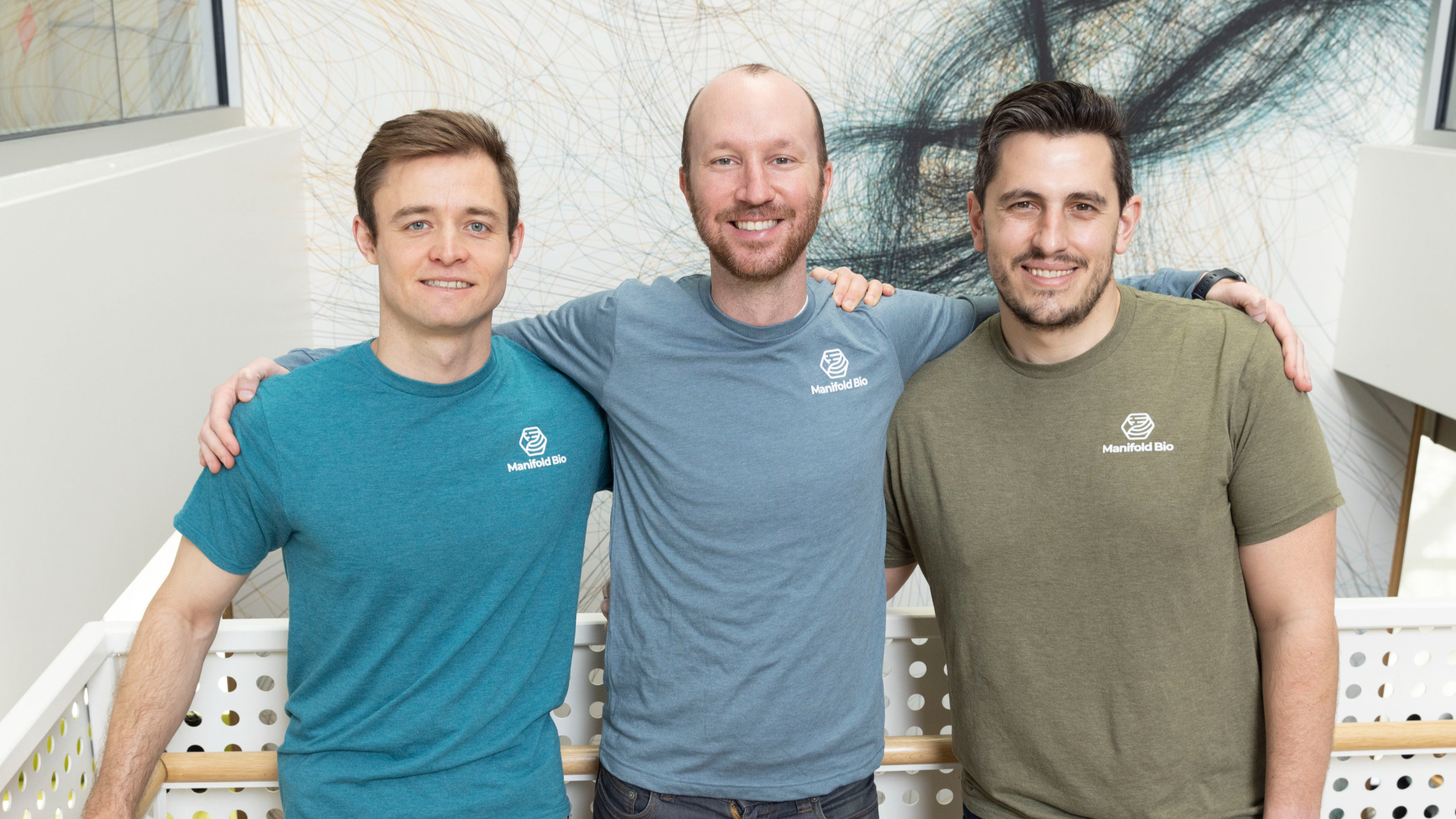
From L to R: Manifold Bio co-founders Gleb Kuznetsov (CEO), Shane Lofgren (head of BD) and Pierce Ogden (CSO)
Protein therapeutics biotech using 'protein barcodes' in drug development secures new financing — led by Jeff Huber
Two years after kicking things off with $5.4 million, a George Church spinout is refilling its coffers to fuel its efforts tackling protein therapeutics R …
Sign up to read this article for free.
Get free access to a limited number of articles, plus choose newsletters to get straight to your inbox.